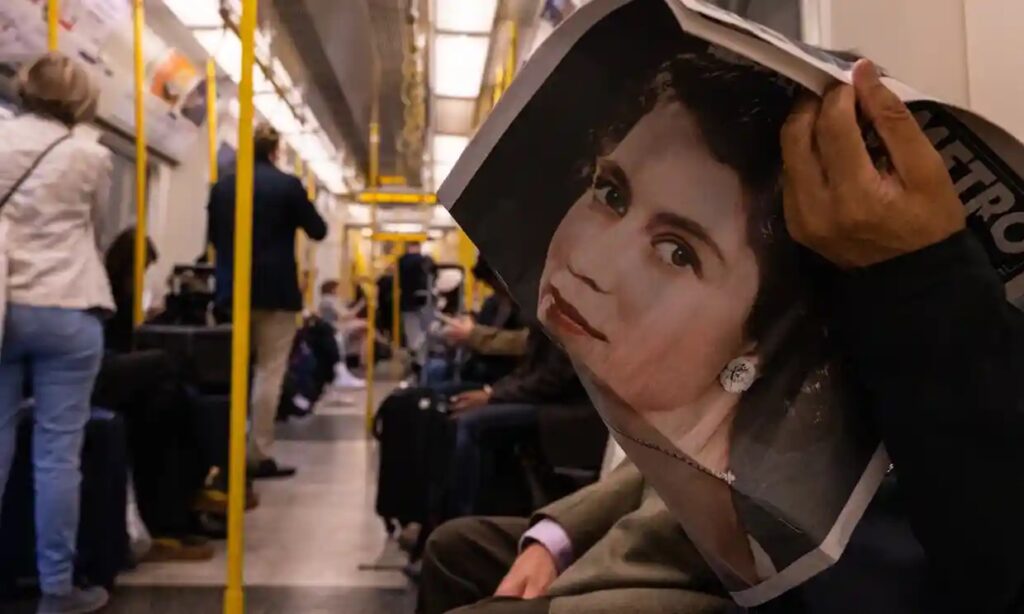Media firms introduce advertising blackouts to respect late Queen – The Guardian

|
Getting your Trinity Audio player ready...
|
SOURCE: Mark Sweney | The Guardian
Broadcasters, newspaper publishers, radio stations and social media platforms including Snapchat have instituted an unprecedented advertising blackout in response to the death of the Queen.
ITV, Channel 4 and Sky are not running adverts on their main channels until at least 5am on Saturday, in accordance with a protocol agreement with Buckingham Palace; however, their digital channels such as ITV2, 3 and 4 will continue to do so.
Commercial broadcasters and industry bodies will meet on Friday afternoon to decide whether the blackout should be extended across the weekend, with some advertisers being told they may face penalties if they want to continue the pause on advertising past the officially agreed deadline of Saturday morning.
Twitter has told media agencies, who buy ads on behalf of clients, that it will not run ads in the UK for 48 hours. Snapchat UK has a 24-hour ban on ads around all news and public service content.
Various advertising blackouts have been introduced by News UK, publisher of the Times and the Sun, Reach, which owns the Mirror and the Daily Express national newspapers, as well as more than 100 regional titles including the Manchester Evening News, and the publishers of the Daily Mail and the Daily Telegraph.
Mail Metro Media – the advertising arm of the Daily Mail, MailOnline, the Mail on Sunday, Metro, Metro.co.uk, i and inews.co.uk – has extended the blackout to include print ads. There will be no ads in the front half of its print titles until Tuesday, with the exception of Metro, which will run ads from Monday.
“In light of the recent announcement and as a mark of respect, Mail Metro Media will not be running any commercial advertisements across our print and digital platforms for a minimum of 24 hours, unless they are adverts in tribute to Her Majesty the Queen,” it said.
Reach has pulled all print ads from the main sections of its titles and on digital homepages and around Queen-related content with a timeline for re-introduction still under discussion.
The Telegraph has removed ads from its print editions and the homepage of its website and intends to review when to re-introduce advertising in a meeting on Monday.
Clear Channel UK and JCDecaux – the two biggest owners of outdoor media sites, from billboards and posters to ads in train stations, airports and the London underground network – have suspended all ads on digital screens and replaced them with tributes to the Queen.
“As an industry, we deemed it important to use our public screens in an appropriate and thoughtful way during a time like this,” said a spokesperson for Clear Channel UK.
Bauer, the media giant that owns magazines and radio brands including Kiss, Magic and Jazz FM, has paused all ads, sponsorships and promotions.
The magazine publisher, Hearst, owner of titles including Elle, Esquire, Harper’s Bazaar, Cosmopolitan and Good Housekeeping, and Condé Nast, the publisher of Glamour, Vogue, Tatler, Vanity Fair and GQ, have pulled all digital advertising at least through the weekend.
The ad blackout will cost media owners millions of pounds in revenue. However, newspapers will get a huge boost in revenues from sales of print copies as the public buy commemorative issues marking the Queen’s death.
Many newsagents and supermarkets rapidly sold out of newspapers on Friday morning. “We are seeing demand far outstripping supply,” said an executive at one major newspaper publisher.
Media owners including Google and Facebook have been contacted for comment.
“We know that the advertising industry will be sensitive to the mood of the nation during this period of mourning,” said Stephen Woodford, the chief executive of the Advertising Association.
This article was originally published on The Guardian. You can view the original article here.


